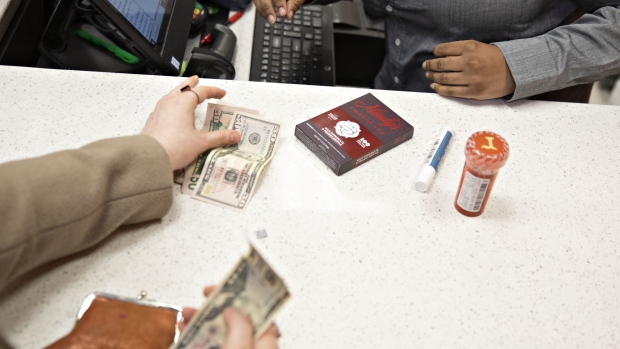Dec 19, 2022
Marijuana Banking Bill Excluded From Year-End Spending Measure
, Bloomberg News

(Bloomberg) -- Legislation to open banking services to marijuana businesses was left out of a must-pass government funding package, ending a year-end effort to move it to President Joe Biden’s desk, a person familiar with the decision said.
The bill’s Senate sponsors, Oregon Democrat Jeff Merkley and Montana Republican Steve Daines, had pushed to include a version of the SAFE Banking Act in the roughly $1.7 trillion funding measure but ultimately it did not make the cut. This is the third failed attempt this year to get the measure passed with a larger package.
Businesses operating in states where marijuana is legal have faced barriers to financial institutions because it remains illegal at the federal level, forcing many of these businesses to deal only in cash, or create workarounds to the banking system — the most popular of which was recently shut down. The SAFE Banking Act would prohibit federal regulators from penalizing banks and other depository institutions for providing services to legal cannabis businesses. It would have been a huge boon to marijuana companies, which have lobbied for the bill as the least controversial form of federal legislation that they’ve sought over the past years.
“We understand that the Senate failed to enact SAFE, missing an opportunity to pass one of the rare pieces of legislation that has the support of both Republicans and Democrats, along with the majority of the American people,” said Kadijah Tribble, chief executive officer of the US Cannabis Council, which represents many of the industry’s largest companies.
Cannabis stocks fell steeply in Tuesday trading on the reports of SAFE Banking’s failure, leaving the AdvisorShares Pure US Cannabis ETF, down 18% for the session, and 72% for the year. The two biggest multi-state sellers of cannabis by market cap — Curaleaf Holdings Inc. and Green Thumb Industries Inc. — were off 17% and 12% for Tuesday’s session, respectively.
The House passed the bill last year on a 321-101 vote, but the measure never got consideration on the Senate floor.
The bill has nine Republican co-sponsors in the Senate, and Democrats would have needed the support of at least one more GOP senator to avoid a filibuster.
But moving it as part of the large spending package created a political hurdle. One of the bill’s GOP co-sponsors, Senator Cynthia Lummis, argued the legislation should have been considered on the floor on its own.
The bill would have to be reintroduced during the next session of Congress, which begins Jan. 3. But it is unclear whether the new Republican majority in the House would bring the measure to the floor.
(Updates with industry reaction, markets in fourth, fifth paragraphs)
©2022 Bloomberg L.P.


